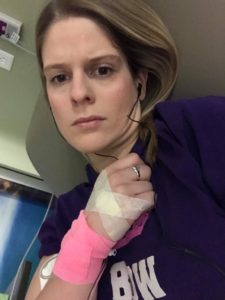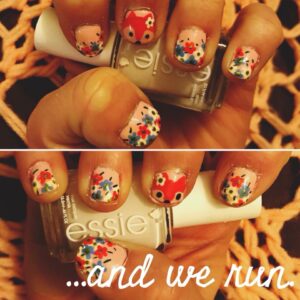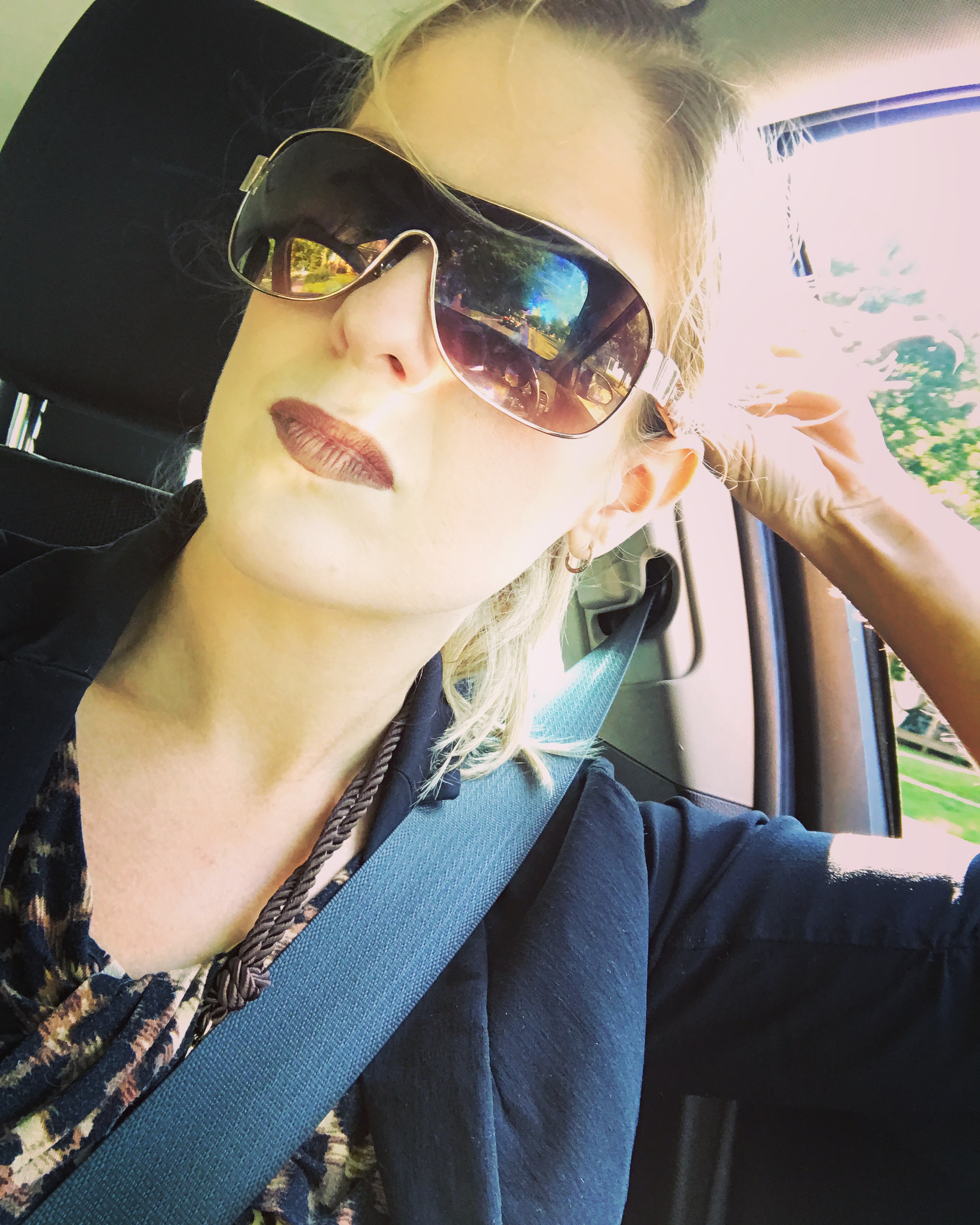
I had some glamour shots taken while getting my infusions done–enjoy!
I still remember my first hospital stay after my first surgery. I was 15 and afraid. I woke up from surgery, though, and everything seemed totally fine. All I wanted was Taco Bell. I would have traded anything for Taco Bell. I begged my mother to go get me Taco Bell–and she did, because I was her child, I had just been through a challenging endeavor, and it was a simple request. As far as we both knew I was fine. As soon as she left, my pain levels rose, I began violently throwing up all over my bed and myself, the swelling inside my cast on my leg became too much–and I pushed that call button next to my hospital through terror and tears.
I’ll never forget the nurse who came through the door and moved the curtain around my bed. I was embarrassed. I was “grown up” and I didn’t want to need my mom or help, but I was covered in my own vomit and I couldn’t move at all because it hurt too much. She didn’t even think a thing of it. She didn’t just do her job, though, she held my hand with her other one, which made cleaning me up much more difficult. She stayed by the side of my bed and held that hand, releasing only once so I could remove my arm from my hospital gown. She let me cry about things I was too embarrassed to say before she held my hand–I told her that I had a catheter in and I had my menstrual period and I felt dirty. I told her I was so nauseous I didn’t know what to do. After she finished cleaning me up, she stayed by my bedside until my mother got back, holding that ugly pink tote while I continued to throw up all the red Jell-O I thought I needed after surgery. I know I threw up on her that day. I still remember her pretty pink scrubs and her name being Jennifer. I remember she was pregnant and there is no way the smell of my vomit didn’t bother her. But she stayed there while I threw up and she stayed there and let me cry–and she made me feel comfortable enough to tell her how mortified I was.
I should have seen that as the start of a lifetime full of nurses being the warriors on the battlefield that is my chronic illness. I don’t know that I often have a chance to acknowledge all of the work all of the nurses have done for me in all of my years seeking treatment. It was another ten years of seeing doctors after that first surgery before I got my EDS diagnosis and there were nurses at every doctor’s office and dozens of visits trying to understand what was happening, all of whom played a role in me finally figuring out my life and my body. They were just as much a key component of my diagnosis as any doctor, because I’m not sure without them I would have been strong enough to keep seeing doctors.
Too often, when things are just too bad and I need help, it is an amazing nurse who has to take my phone call. I have tremendous doctors, but that means they see a lot of patients. My nurses have taken many phone calls from me crying that I need help with something. Those same nurses have hunted down my very busy doctors to get prescriptions filled, appointments squeezed into calendars and referrals made for me–none of which would have happened without their loud, booming voices speaking for the patients they represent.
Part of what I’ve sought to do through my work in real life and in the words on this blog is to advocate and speak for the patients who face a lifetime of incurable, chronic illness; what I’m telling you right now is that nurses do this one hundred times better than I do every single day–and often while being vomited on, yelled at, and not getting enough sleep.
This morning, I had my first round of an infusion therapy we are experimenting with for my pain. It is administered entirely by nurses. The first nurse attempted to get the IV in twice. I have wonderful veins for IV placement, but my EDS skin makes it so challenging. After she didn’t get it the second time, I was crying and she apologized so quickly, wanting to find a second nurse. She asked me if I was in pain from the needle pokes. As I choked back the tears and told her it wasn’t her and it wasn’t the needle pokes, but just that I’m so scared and I’m so tired of trying everything and nothing working so this just felt like another failed attempt already, she got another nurse to do the IV, but only so she could hold my other hand while she did it and tell me it was going to be okay. She sat there next to me and let me know that she was going to be there every second I was there making sure I was okay. She is a highly trained medical professional and she still fetched me a soda for comfort, carried my purse because it’s hard on my crutches, and asked me questions about the work I do in the city I live in. She couldn’t cure what’s wrong with me, but she did distract me for moment. When she held my hand as the other nursed inserted the IV into my other arm, I flashed back to being 15 and covered in my own vomit as a nurse took twice as long cleaning me up with one arm so she could make sure I felt safe and secure while she did it.
The nurse today kept her word. Katie checked on me several times throughout the process. She brought me extra pillows and dimmed the lights when it made me tired. She took notes on my side effects and fetched the emergency nausea prescription I have to carry in my purse when the side effects got to be too much. She made sure to offer to slow down my drip when I was uncomfortable.
Katie was a wonderful nurse. I hope she gets the recognition she deserves–but what strikes me is that she isn’t even all that unique. I have encountered dozens, maybe hundreds, of nurses with this level of dedication to their patients. If doctors are the generals on our battlefields, they are our foot soldiers–and I will salute them every single time.
What do you want me to write about next? Thoughts?





